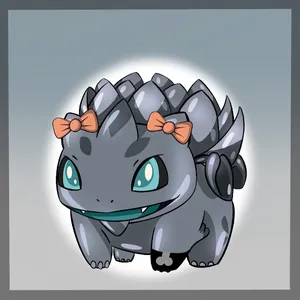Now, it seems that The Pokémon Company International (TPCI) is doing something about it. They hired private investigators to try to locate and serve a company called Kotiota with legal papers, though ultimately were unsuccessful in finding their offices or any employees.
Kotiota was engaged in unusually brazen Pokéfraud, sending legal letters to news outlets who had written about the real Pokémon games and insisting they be named as a developer. Their website falsely claimed Kotiota had been working on various recent Pokémon games, and the company had even forged an agreement with TPCI to claim they had a license agreement.
Kotiota had been planning to release a Pokémon-based play-to-earn blockchain game and collection of NFTs in January 2023, but an Australian court has barred the company from doing so, and ordered them to stop using the Pokémon brand or claiming to have developed the games.




